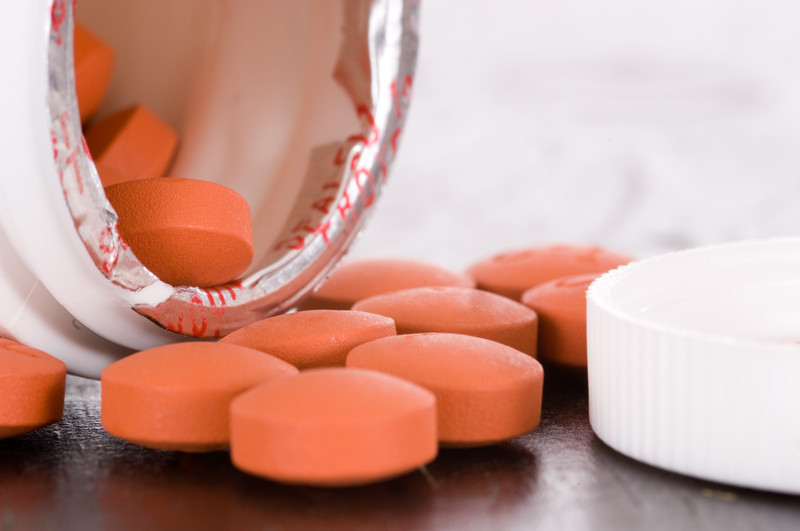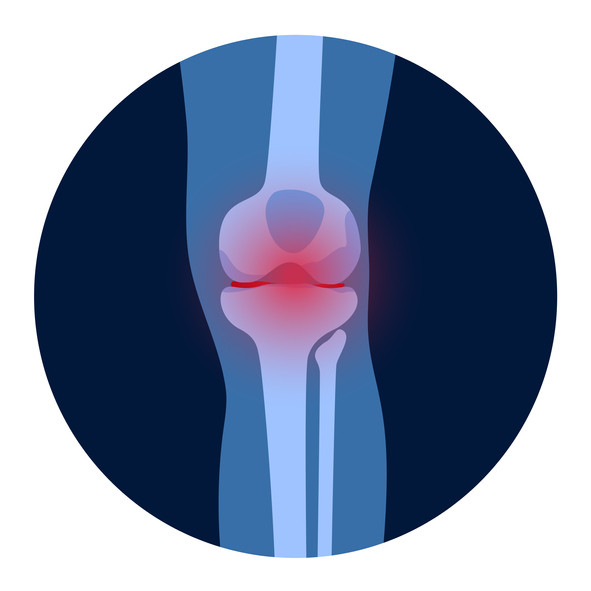
5 timeless habits for better health

What are the symptoms of prostate cancer?

Is your breakfast cereal healthy?

When pain signals an emergency: Symptoms you should never ignore

Does exercise give you energy?

Acupuncture for pain relief: How it works and what to expect

How to avoid jet lag: Tips for staying alert when you travel

Biofeedback therapy: How it works and how it can help relieve pain

Best vitamins and minerals for energy

Should you take probiotics with antibiotics?
Arthritis Archive
Articles
Did my diet cause my gout?
Ask the doctors
Q. I eat a lot of shellfish and recently developed gout in my knee. Did my diet cause the condition?
A. As you probably know, gout is a painful form of arthritis that occurs when high levels of a waste product called uric acid build up in the body. It can settle into joints, where it forms sharp crystals that can trigger inflammation, redness, and pain. Your diet may have aggravated the condition, but didn't cause it.
Am I too young for a knee replacement?
Ask the doctors
Q. I'm in my early 50s and am considering a knee replacement for severe arthritis. I've heard that doctors typically encourage people to wait until after age 60 to perform this procedure. Should I wait to have the surgery?
A. Doctors do sometimes recommend that people under age 60 wait to undergo a knee replacement procedure, because these artificial joints typically last only about 15 to 20 years. If someone younger gets the procedure, it's likely that the joint will need to be replaced again down the line. That said, the decision to have a joint replacement really depends more on your individual circumstances, such as how much pain you have, whether the problem is causing you significant disability, and your overall health, not just how old you are. Some people can safely wait until they are 60 to undergo the procedure without a problem. For others, waiting too long to have the knee replaced might not be advised. For example, if the knee joint deteriorates too much, that may make the surgery to replace it more challenging. Over all, most people (80% to 90%) who do opt for a knee replacement are happy with the results of the procedure, but it's best to discuss the pros and cons with your doctor.
Where to turn for pain relief - acetaminophen or NSAIDs?
The first line of treatment for many knee and hip problems includes taking over-the-counter pain medications. Acetaminophen and non-steroidal anti-inflammatory drugs (NSAIDs) such as ibuprofen and naproxen are the most common pain medication options. However, these pain medications have a variety of side effects, so it's important to discuss your personal health risks with your doctor when considering long-term use for chronic conditions such as osteoarthritis.
Acetaminophen (Tylenol and other brands) is usually effective for mild pain and is easy on the stomach. However, it is toxic to the liver at high doses. The recommended maximum per day is generally set at 4 grams (4,000 milligrams), which is the equivalent of eight extra-strength Tylenol tablets. But that dosage can still cause liver problems for some people. To be safe, aim for 3,000 milligrams or less, and be cautious of mixing multiple products containing acetaminophen, such as a pain reliever and a cold medication or a prescribed narcotic.
5 weight training tips for people with arthritis
Strength training is good for just about everyone. It's especially beneficial for people with arthritis. When properly done as part of a larger exercise program, strength training helps them support and protect joints, not to mention ease pain, stiffness, and possibly swelling. Yet, the thought of starting a weight training program can be daunting to many arthritis sufferers.
If you have arthritis and want to incorporate strength training into your health routine, these tips can help you get started.
Harvard Health Ad Watch: Can an arthritis drug help you become a morning person?
An ad for an arthritis medication seems to suggest that taking it will alleviate or even eliminate morning stiffness, allowing you to hop out of bed. Like most drug ads, this one has unspoken messages and glosses over questions about side effects and cost.
Can gout be prevented?
Gout, a debilitating form of arthritis, is on the rise compared with rates in prior decades. Obesity is probably a significant factor in this increase. Now, a new study suggests that three-quarters of gout cases in men might be completely avoidable by following certain protective health habits.
The new-old way to treat gout
New guidelines suggest doing more of the same. The problem is that many people don't.
You never forget your first gout attack. The severe pain, swelling, and redness hits hard and fast. The initial attack often strikes your big toe's large joint, but later ones might affect the foot or ankle. Other hot spots include the knees, hands, and wrists.
First-line treatment is quite effective and includes anti-inflammatory medications, ice therapy, and rest. A combination of diet and lifestyle changes and prescription drugs — an approach called urate-lowering therapy, or ULT — is typically recommended if attacks recur or become more severe.
Stopping osteoarthritis: Could recent heart research provide a clue?
Currently no medication can slow the progress of osteoarthritis. And while a reanalysis of a study of people with heart disease suggests a promising approach, more definitive research will be necessary to confirm this.
Are cracking joints a sign of arthritis?
On call
Q. My knees have been cracking for a long time, but lately I've noticed my ankles and elbows sometimes crack and pop. Is this a sign of early arthritis?
A. The good news is that the usual painless joint cracking or popping does not represent an early form of arthritis, nor does it cause joint damage (despite what our mothers told us about cracking our knuckles). The cracking sound appears to come from tendons or muscles moving over the joint or from the popping of nitrogen bubbles normally found in the joint space.

5 timeless habits for better health

What are the symptoms of prostate cancer?

Is your breakfast cereal healthy?

When pain signals an emergency: Symptoms you should never ignore

Does exercise give you energy?

Acupuncture for pain relief: How it works and what to expect

How to avoid jet lag: Tips for staying alert when you travel

Biofeedback therapy: How it works and how it can help relieve pain

Best vitamins and minerals for energy

Should you take probiotics with antibiotics?
Free Healthbeat Signup
Get the latest in health news delivered to your inbox!
Sign Up











